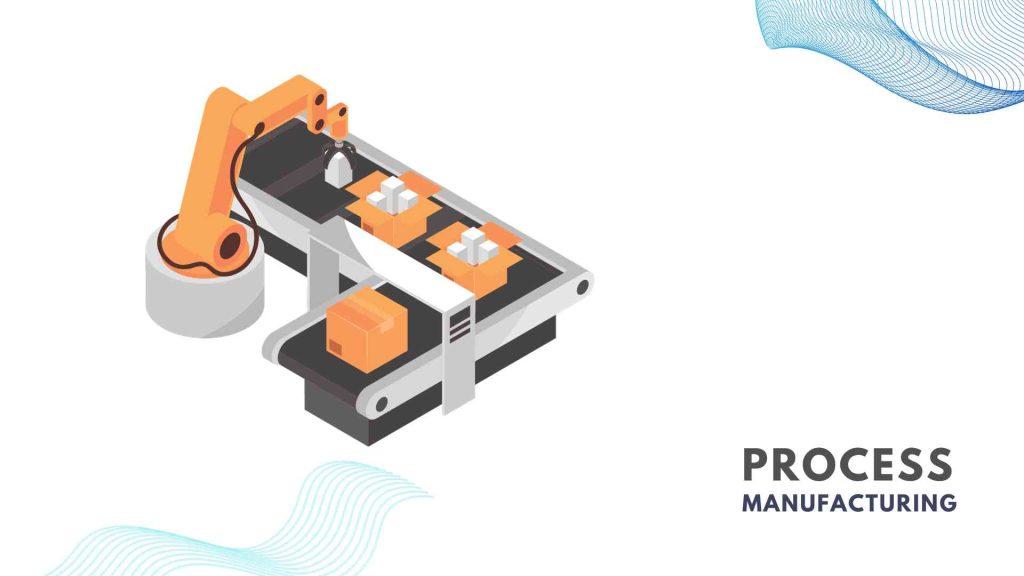Process manufacturing, a cornerstone of diverse industries, including pharmaceuticals, chemicals, food, and beverages, is vital in the global production wheel. Yet, beneath its essential role lies a complex web of challenges that manufacturers must navigate. From managing intricate supply chains and adhering to stringent regulatory requirements to maintaining batch consistency and optimizing production efficiency, the road to success in process manufacturing is fraught with obstacles. In this article, we delve into the multifaceted challenges process manufacturers face and explore innovative solutions that can help them succeed in an increasingly competitive landscape.
Challenges in Process Manufacturing
Complex Supply Chains
Process manufacturing often involves:
- Intricate supply chains with multiple suppliers.
- Varying lead times.
- A constant need for raw materials.
Coordinating these elements can be challenging, leading to production delays and cost overruns.
ERP systems streamline the supply chain by delivering real-time visibility into inventory levels, order groups, and supplier performance. It enables better inventory management and reduces the risk of stockouts or overstocking.
Regulatory Compliance
The process manufacturing industry is heavily regulated, with strict compliance requirements related to quality, safety, and environmental standards. Navigating these regulations can be time-consuming and costly.
Cloud ERP are designed to assist in compliance management by automating documentation, tracking quality control processes, and ensuring that products meet regulatory standards. It minimizes the risk of non-compliance and potential penalties.
Batch Process Management
Many process manufacturers operate in a batch production environment, which demands precise control over recipe management, batch tracking, and quality assurance. Manual record-keeping can lead to errors and inconsistencies.
ERP offers batch process management modules that enable automated tracking of ingredients, process steps, and quality checks. It ensures product consistency and traceability.
Production Efficiency
Maintaining optimal production efficiency is crucial for process manufacturers. Factors such as equipment downtime, production bottlenecks, and inefficient workflows can hinder productivity and increase costs.
ERP provides real-time production monitoring, predictive maintenance capabilities, and workflow optimization tools. It helps manufacturers identify and address issues quickly, reducing downtime and improving overall efficiency.
Inventory Management
Managing raw materials, intermediates, and finished goods inventory can be challenging in process manufacturing due to the perishable nature of some products and the need to maintain precise stock levels.
ERP solutions incorporate advanced inventory management features, including demand forecasting, just-in-time inventory control, and lot tracking. These features ensure that inventory is optimized, reducing carrying costs and minimizing waste.
Data Integration
Process manufacturers often deal with disparate data sources, making obtaining a unified view of operations difficult. Siloed data can impede decision-making and hinder collaboration.
ERP systems integrate data from various departments, such as production, finance, and procurement, into a single platform. It provides a holistic view of the business, facilitating data-driven decision-making and enhancing collaboration.
Process manufacturing is a complex and highly regulated industry with many challenges, but ERP solutions offer comprehensive tools to address these issues effectively. By implementing an ERP system tailored to their needs, process manufacturers can streamline their supply chains, ensure compliance, enhance batch process management, improve production efficiency, optimize inventory management, and achieve better data integration.
These solutions enhance operational efficiency and empower manufacturers to stay competitive in a growing marketplace. In an increasingly digital world, ERP systems are becoming indispensable for process manufacturers looking to overcome their unique challenges and thrive in the industry.
How Acumatica Enhance?
Acumatica Cloud ERP emerges as a powerful ally for process manufacturing industries, poised to revolutionize their operations. With its robust suite of features, Acumatica ERP addresses the intricate challenges of supply chain management, regulatory compliance, batch process control, production efficiency, inventory optimization, and data integration.
Acumatica empowers process manufacturers to enhance operational efficiency, ensure product quality and safety, minimize costs, and make data-driven decisions by seamlessly integrating these critical aspects into a unified platform. In an ever-evolving landscape, Acumatica ERP stands as a strategic solution, enabling process manufacturers to overcome their challenges and thrive in the competitive manufacturing world. Contact us for a customized ERP solution.

Sangeetha brings 20 years of experience in Information Technology which includes Solution architecting, building micro services, research, and evaluation of business applications, integrating apps.

